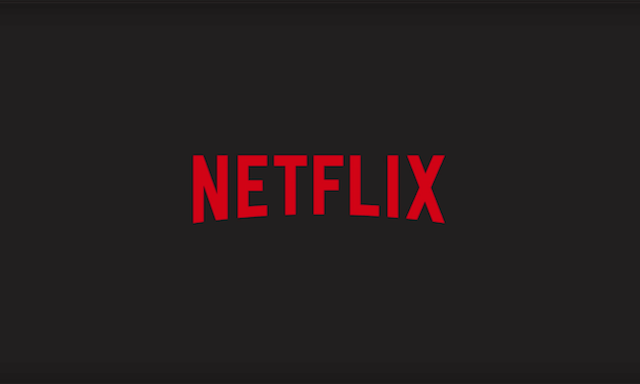The biggest streaming service in the world has seen interest dim in the past year - but why is that and how can it stay on top?
Netflix is struggling. This year alone, the streamer has lost 1.2 million subscribers globally and in all likelihood that drop-off rate will probably increase as the year goes on. With the economy going the way that it is, people are tightening their belts more than ever before and "unnecessary" extra-curricular services such as this are normally the first to go when cutting costs.
However, the same can't be said for Disney+. The arrival of the House of Mouse's streaming service in 2019 (in the US) and 2020 (in Europe) shook up the competition, with Marvel, Star Wars and Disney's huge stock of animated projects all being the biggest draws for subscribers. Now that it has begun to add more adult-related content, Disney+ is gunning for the top spot that Netflix has easily clung onto tight for years. In the last quarter alone, Disney+ added 7.9 million subscribers worldwide.
But how can Netflix stay on top? We've got a few ideas as to how it can compete with its growing competition.
Quality Over Quantity
Since beginning to create original content in 2013, Netflix has over 1,500 original series and movies in its back catalogue alone. Globally, Netflix owns 17,000 titles, meaning that there are literally thousands of titles to choose from. No wonder we keep endlessly scrolling.
It's amazing to know that literally whatever you want to watch, there's something there for you. However, with endless possibilities, there also comes the chance that what you're watching might not actually be worth your time and effort.
Netflix Originals can be very hit and miss. There are a few gems in its, arsenal but on the whole, some Netflix releases end up turning into a disappointment. Their blockbuster movies are (generally) copy and paste affairs with popular names attached to draw in audiences for an action film that, in all reality, is no different from the one that came before it ('The Gray Man', 'Red Notice' etc). However, if they were to whittle down their releases and put a little bit more care into creating a more captivating experience for viewers, chances are they might see their aggregate review scores go up (and their subscriber count).
If Netflix followed a more similar approach to Apple TV+, which typically backs thriller/comedy/family titles, they might have a chance at getting back all of those subscribers that have begun to lose interest. Apple TV+ without a doubt has some of the strongest, most well-received content out there, and if Netflix were to be choosier with their collections, they too could have more highly regarded and critically-acclaimed shows on offer.
Stop Trying To Please Everyone
One great thing about Netflix is that it has broad appeal. Want to plonk your kids in front of the latest animation? Do you have a penchant for a sci-fi series? Or maybe you're looking for a true crime murder doc you can snuggle up to before bed? Check, check and triple-check.
But what Netflix is doing is trying to cater to everyone, and it doesn't need to. Without a doubt, the streamer has the best collection of true-crime doc hits when compared to its competition, and so it should keep going in this sector, especially as they are easily the cheapest productions to make.
They've already announced that its animation studios will be getting a sizeable cut, which is unfortunate, but with subscribers falling and animation needing higher budgets, it makes sense that this is the first sector to feel the pain. With Netflix heavily investing in gaming, it'll be interesting to see if this sector is the next to take a hit.
Pleasing everyone does mean that some titles get lost in the release slate shuffle and don't get their moment to shine, potentially not drawing in as big of an audience as hoped ('The OA', 'Sense8', 'I Am Not Okay With This' to name a few). Netflix's strict one-month viewership numbers policy meant that a number of well-received shows ended up on the cutting room floor due to poor promotion.
Weekly Episode Releases
'Stranger Things' season four was split into two separate volumes because of time constraints, let's be honest. That super long season finale needed its CGI sequences to be worked on for longer than anticipated, and so Netflix gave the finale an extra month or so of work so that it lived up to expectations. The genius part though, which Netflix might not have anticipated, was that it created a HUGE buzz for volume two to arrive.
As a viewer, when you're given a whole series to watch at once, there's a certain amount of pressure placed on you to finish it as fast as you can. Saying this as a person who regularly checks social media, how quick you watch the series is necessary to avoid seeing any potential spoilers online, or to chat about the series with a friend.
However, if Netflix did a weekly release (which they do with some titles, such as 'Better Call Saul') for all of their series, it creates a more harmonious viewing experience for all. It builds anticipation. It makes watching the series more of an "event". It saves you from having that awkward conversation with your significant other as to why you ploughed ahead on the latest episode of 'Selling Sunset' without them.
And the joke here is that every other streaming service does the weekly release method. Sure, other streaming services might not have enough new titles to warrant an entire season dropping at once, and need new episodes weekly to ensure the site is looking "fresh", but this then goes back to the original point of quality over quantity.
Are you currently subscribed to Netflix? Or have you jumped ship to another competing on demand TV and movie service?
















































































